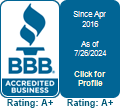We frequently get questions about whether a vacation home can be used in an Internal Revenue Code 1031 Exchange. Vacation homes may qualify for an exchange under Internal Revenue Code 1031 if the taxpayer’s use of the home is minimal and the property is also rented.
On February 15, 2008, the Internal Revenue Service issued Rev. Proc 2008-16, which issued more stringent guidelines for exchanging vacation homes.
The relinquished property must have been owned for 24 months immediately before the exchange.
In each 12 month period before the exchange, the taxpayer must rent the relinquished property for 14 days or more, at a fair market rate.
The taxpayer’s personal use of the property cannot exceed the greater of 14 days or 10% of the days rented in either 12 month period.
Furthermore, the replacement property must be owned for 24 months immediately after the exchange.
In each 12 month period after the exchange, the taxpayer must rent the replacement property for 14 days or more, at a fair market rate.
The taxpayer’s personal use of the replacement property cannot exceed the greater of 14 days or 10% of the days rented in either 12 month period.
In summary, a vacation home must be owned two years before an IRC 1031 Exchange can be used, and two years after the exchange has been completed. Additionally, the property must be rented for at least 14 days in each of the four years. These guidelines represent a more onerous requirement then was previously expected in the exchange of vacation homes.
Thursday, April 28, 2011
Thursday, October 7, 2010
Bank of America Suspends Foreclosures
Bank of America is the latest lender to suspend foreclosure. The bank joins J.P. Morgan Chase & Co and GMAC Home Mortgage Inc. in the suspensions. The suspensions affect homeowners in 23 states.
The cause of the suspensions are "robo-signers" that repossess homes in default without reviewing the loan documents.
Read more about suspending of foreclosures on the Wall Street Journal website.
The cause of the suspensions are "robo-signers" that repossess homes in default without reviewing the loan documents.
Read more about suspending of foreclosures on the Wall Street Journal website.
Wednesday, October 6, 2010
What is a Triple Net Lease?
Triple-net leased properties are an increasingly common replacement property for 1031 real estate exchanges, since the owner of the triple net property has no management duties.
A triple net lease is a lease agreement on a property where the tenant agrees to pay all real estate taxes, building insurance, and maintenance and utilities (the three 'Nets') on the property in addition to base rent and any normal fees that are expected under the agreement.
The advantage of owning a building with a triple net lease is that it can generate a high level of income for the owner with no management duties. When used in commercial properties, the tenant is usually a single tenant, investment grade rated corporate business with a long-term lease and a stable cash flow.
The tenant has many of the advantages of ownership, including control over the property, without the substantial capital investment that a new acquisition requires. Since the tenant will want to attract customers, the property will be kept in good condition, and regular improvements will be made as well.
Risks include questions pertaining to the health of the tenant's business model and factors concerning their financial strength such as the number of stores, debt to equity ratios, operating margins, stability of management, and the outlook for their industry sector. For example, drug stores are considered a growth industry due to the aging demographics of the population, while video rental stores are vulnerable to new technologies like the Internet.
The main mitigating factor to these risks is that the buildings are almost always in attractive locations for a new tenant should that need arise.
If you are looking for:
Then a triple net lease property can be a great option.
A triple net lease is a lease agreement on a property where the tenant agrees to pay all real estate taxes, building insurance, and maintenance and utilities (the three 'Nets') on the property in addition to base rent and any normal fees that are expected under the agreement.
The advantage of owning a building with a triple net lease is that it can generate a high level of income for the owner with no management duties. When used in commercial properties, the tenant is usually a single tenant, investment grade rated corporate business with a long-term lease and a stable cash flow.
The tenant has many of the advantages of ownership, including control over the property, without the substantial capital investment that a new acquisition requires. Since the tenant will want to attract customers, the property will be kept in good condition, and regular improvements will be made as well.
Risks include questions pertaining to the health of the tenant's business model and factors concerning their financial strength such as the number of stores, debt to equity ratios, operating margins, stability of management, and the outlook for their industry sector. For example, drug stores are considered a growth industry due to the aging demographics of the population, while video rental stores are vulnerable to new technologies like the Internet.
The main mitigating factor to these risks is that the buildings are almost always in attractive locations for a new tenant should that need arise.
If you are looking for:
- a real estate investment with buildings that are typically new or nearly new
- no management responsibilities
- a long-term lease to a quality tenant
- high rate of return
- stable cash flow
- attractive financing
- the unique tax benefits only real estate provides
Then a triple net lease property can be a great option.
Subscribe to:
Posts (Atom)

